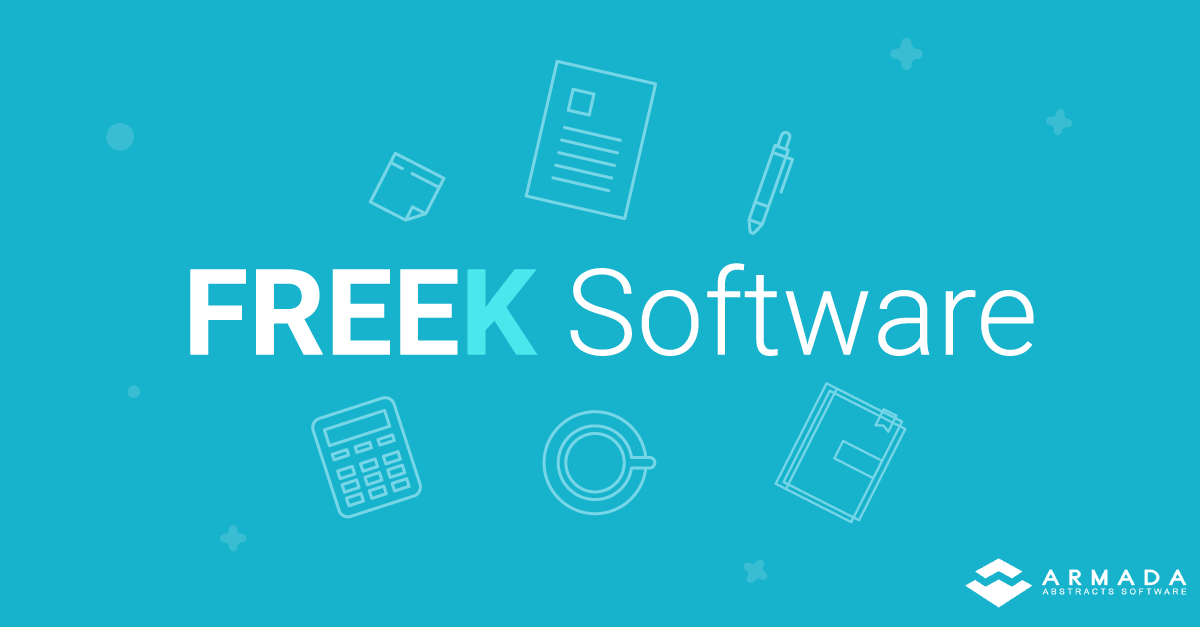
Free Abstract Management Software Total Cost of Ownership (TCO)
The ‘FREE’ word is an advertiser favorite.
As a user, we all know why?
You would agree that “FREE” usually costs money and time. And in the context of software implementation at an enterprise level, the stakes are higher. “FREE”
Free Abstract Management Software
Let’s do a quick exercise.
Please type “free abstract management software” into Google.
What do you notice in the first 10 results?
A list of the top abstract management software. None of them are free though.
A 30 Day ‘Free Trial’ is the closest you would get to free.
The search results are the search engine’s way of hinting that a free software is available, as long as you are ready to pay.
Free software does exist, if you care to look around. But, does it make the job of a conference planner easy? While it should, it does not end up that way.
In our experience, it is not unusual to find abstract management teams squander countless (and precious) man-hours understanding incomplete documentation and finding competent resources, without credible success. Thus, time cost and the total cost of ownership associated with free software is understated.
The Total Cost of Ownership of Free Abstract Management Software
In the context of abstract management, the following factors could add cost to your attempts at utilizing an abstract software for business.
1. Tech Problem increases Project Risk
Enterprise processes are complex. Software specifications to address those complexities tend to add ambiguity to the requirements list. This challenge gets compounded because of the technology learning curve associated with the new ‘free software’. In tough implementations, it could also result in a ‘high’ project risk, even risking failure of the entire project itself.
This technology factor also raises a question if abstract leaders should focus on their core competence of abstract management, or take up a new problem of software development.
2. Dedicated Team for Setup and Maintenance
The setup of an enterprise abstract software is a serious project lasting couple of quarters. With a non-commercial free abstract technology, abstract project managers would need the support of dedicated teams, who would assume responsibility for successful and timely project completion. And then continued support and maintenance over years. This brings into play the challenges of team building, management and training.
3. Limited Customization and Depth
Abstract management software would require customization depending on use cases. Some of these are as under:
- Exhaustive submission requirements: A Call for Papers with just a few abstracts might be simple compared to hundreds of abstract submissions. Complex abstract collections involving many stakeholders may require additional modules and fields. Add to this any process improvement initiatives especially to reduce to-and-fro emails seeking information.
- Scheduling: This is critical to the success of any call for papers process.
- User Experience: It is not only free software but even the commercial products for abstract management that are unwieldy and have little regard to user experience and modernity. But, today’s delegates and reviewers are natural users of some of the most cutting-edge consumer digital products in history. Plus, the need to be mobile first for any digital product.
Free Software, Think Again
All the factors mentioned above, and more, add cost to FREE software – time, resources, energy and risk.
Does this mean abstract management teams are better off implementing commercial software?
Would you like to share how your free abstract management software implementation is faring?
